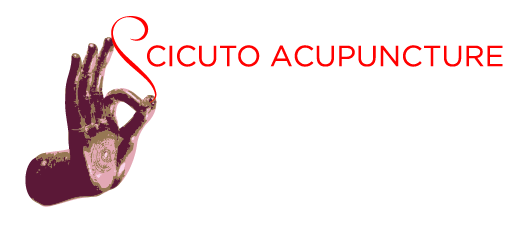Imagine Life Without Period Cramps
(This article originally appeared in AcuTake Health.)
Do you, or does someone you know, suffer from period cramps? Thought so.
Most women assume that menstrual cramps are normal, an inevitable monthly occurrence during their menstruating years. But here’s a secret: Period cramps are actually signs of an imbalance somewhere in the body. Once that imbalance goes away, so does the pain.
Acupuncture can help shift the imbalances that cause menstrual cramps, opening up a whole new world in which having your period does not equal pain.
Interested in learning more? Thought so.
Period Cramps According to Acupuncture
In acupuncture, there are three organs that greatly influence a woman’s period: Kidney, Liver, and Spleen.
The Kidneys are in charge of reproductive health, and of balancing Yin and Yang. The Spleen is in charge of regulating phlegm and dampness, and of keeping the period flowing when it’s supposed to. The Liver is in charge of blood, including menstrual blood—how smoothly it flows and how heavily.
Imbalances in any of these three organ systems can contribute to period pain.
For example, if you bleed for a very long time, that may be a clue that your period cramps are being caused by an imbalance in the Spleen system. If you have blood clots during your period, that may point to the Liver. If your cycle is irregular, an acupuncturist may start thinking in the direction of Kidney.
Determining Your Imbalance
In order to rectify the imbalance that may be causing you period cramps, your acupuncturist must figure out which system is affected.
In addition to looking at your tongue and taking your pulse, your acupuncturist will ask detailed questions about your menstruation: the location of the pain, when in your cycle you experience pain, the color and consistency of your menstrual blood, whether you have blood clots, how long your period lasts, and more.
Next time you get your period, try to notice these things so that you can provide your acupuncturist with as much detail as possible. If you keep track of your period on a calendar or smart phone app, bring it to your appointment. And remember to tell your acupuncturist if you’ve had any abdominal surgeries—not just gynecological—because sometimes the scar tissue that forms as a result of surgeries can contribute to period pain.
As far as an acupuncturist is concerned, no amount of information is too much.
When To Get Acupuncture
Based on your diagnosis, your acupuncturist will let you know if you should come for treatments before, during, or after your period—or a combination of all three.
Acupuncture treatments for period cramps may be more frequent initially, until you start showing signs of improvement.
While going for acupuncture treatments, it can be helpful to keep a journal of how you feel throughout your menstrual cycle. This allows you to compare your symptoms with previous months to determine if you are making progress.
Self-Care for Period Cramps
Dietary changes, such as adding anti-inflammatory foods, can help reduce period pain. Unfairly, the foods many of us crave around our periods, including sweets, are the ones we need to cut back on. Ask your acupuncturist for specific recommendations for how you can alter your diet to help reduce period cramps.
Your acupuncturist may also give you moxibustion to use at home. Self-acupressure can be effective as well—Spleen 6 and Liver 3 are great for easing cramps.
Are you ready to start experiencing life without period cramps? Thought so. Call your acupuncturist.

